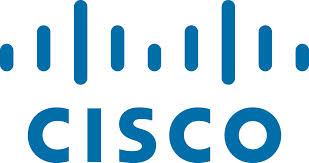I was in Ottawa on Wednesday/Thursday, attending
Nortel's Futures 2008 media/analyst event. This doesn't happen every day for me, but we were told that
our group was the first to see any of this stuff outside of Nortel. So, for a change, I've got a bit of a scoop here. I'm not going to tell you everything we saw, but we received enough guidance from Nortel for me to say that the contents of this post are ok with them.
You may be skeptical to hear about
the "New Nortel", but that was definitely the point about us being there. Our job is to get the vision of what's coming and what's possible as Nortel tries to re-cast itself in the post-PBX era. I don't think we ever heard any mention of PBXs or softswitches, although they haven't exactly disappeared.
Not everything we saw was totally new, but
there was certainly enough on display to conclude that Nortel still has a lot to offer, and their R&D remains first rate. There is plenty here to write a great case study about how to transform a company from being hardware-based to being software-centric.
With that, I'm going to share some highlights here along with some photos of the day.
-
Project Chainsaw demo (w.a) - this was the first demo, and the most impressive. This was Nortel's vision of how really good quality audio can enhance a Web-based experience. They've taken voice as a core concept to improve upon, and did a great job demonstrating how much better 44 Khz stereo voice sounds than 8 Khz mono. No surprise there, but they really brought this to life with two specific applications.
The first was ecommerce, where they showed a virtual shopping experience for Dell computers. Unlike Second Life, where you can do similar things in their world, this scenario was hosted directly on Dell's site, so the customer stays in your domain rather than leaving the Dell site to do this somewhere else. By combining highly interactive avatars with clean graphics and great sound, the experience feels very life-like and very social - which they feel is key for using virtual environments to drive ecommerce. I really liked this, as it solves a real business problem, as opposed to just creating a cool social environment for people to hang out in.
To me, this is how you monetize the web.The second example was collaboration, which is another aspect of
Project Chainsaw. At first we thought this was a secret codename, but they're fine with us sharing it with you.
The intended message is for the world to see that the new Nortel is still cutting edge, and intends use brute force - of innovation - to sever the past and move into the future. Time will tell, but there's no doubt this will create a lot of noise and buzz once it hits the market.
The Chainsaw demo was actually very good, and a convincing way to convey the power of virtual collaboration environments. It was very much like
Second Life, but in this case, just among Nortel employees - real ones. So, we got to interact real time with Nortel avatars whose virtual presence was in front of us, but were physically located somewhere else. It's a bit surreal, and while the avatars are cool, they really serve as virtual placeholders to make the interaction feel social. What makes the experience effective is the spatial audio, which mirrors how real social interactions occur. The volume changes accordingly as the avatars move about, walking up to you, or moving away, including the pitter patter of their feet.
What's really neat is that you can participate from any broadband connection. Of course it looks best on a big screen in the conference room (see my photos below), but you can run this on your PC, and yes, your mobile device. To me, this is the real power of Chainsaw, as you extend the experience much further than a videoconferencing or telepresence session. Why? Simply because it's virtual, and the focus is on the audio not the video. Avatars don't require nearly as much bandwidth than real time video, and the technical challenges around synching up voice and video aren't there.
They really see this as the future of communications and collaboration - so much so that
they believe the PBX will disappear altogether once enterprises see the power of this concept. It's definitely Web 2.0 and Voice 2.0 and many other things. To me, it's a bit like how music videos have impacted how we relate to music. Before video, we LISTENED to music - on our stereos, tape recorders, the radio, clubs, etc. With the advent of video, especially on TV, I hate to say it, but nobody listens to music any more - we WATCH it.
Don't get me started on this one - that's the topic of a blog unto itself - but you get the idea. It's the same thing here - Chainsaw is primarily a visual experience, but the real communication is verbal - that's how people are really engaging and getting things done. Like MTV, it's a new kind of experience, but one that I think has a lot of potential. How this impacts their relationship with Microsoft and the whole Unified Communications landscape remains to be seen, but it's always great to see something that's a departure from the conventional approaches to communications.
They also talked about
"accidental collaboration", a term which I really love. That was the idea where these environments allow people to be together in the same place and time, where in real life this hardly ever happens. So, you're having a scheduled conversation with one peer, and then you notice that someone else you've been wanting to connect with was is there too. Now you have a chance to actually engage. It may be a virtual environment, but the conversation - using Nortel's voice technologies - is very real.
I'll finish up this disussion with a few references. Colleague
David Greenfield is more familiar with these virtual community technologies than me, so
I'll steer you to his post about this demo and additional commentary.
Next - if you've followed my blog for a while, you may recall a post from last year about
DiamondWare, another company I got a very early sneak peek at before most anyone else. There are many parallels to Chainsaw, and if you're interested in the space - especially for gaming - you'll find
my post about them to be of interest. And if you don't believe me, just ask the Nortel team. We talked offline about this, and yes, they're quite familiar with DiamondWare.
Rich Tehrani also noticed the parallels, and added a few things to the mix in
his post, as he also had some early exposure to DiamondWare. Ok, let's move on.
- We saw a few demos around
Unified Communications and desktop applications, all of which enforce the notion that Nortel is clearly moving away from hardware to software, and is focused on the end user like never before. Highlights included ACE - Agile Communications Environment - and a presence-based mashup they created for a client in 4 weeks that integrates a Nortel plug-in with Yahoo Messenger. We heard a lot of talk around Web-based applications and a movement to create a developer sandbox. Over the course of the day,
I have to say much of this was consistent with what I've been seeing from other Tier 1 vendor analyst events. They're all embracing the end user, applications and developers, which is great news for innovation. Of course, there's the possibility they'll all come to market with the same solutions, but no doubt they're monitoring each other closely to ensure this doesn't happen.
- Moving along to yet another locale within the campus, we saw a really engaging
healthcare demo. All the big vendors are building vertical market solutions, and Nortel is right there with them. They ran us through a variety of scenarios where people and things can be tracked real time inside a hospital using RFID tags and mobile devices. On a basic level, it's about asset tracking to make sure that patients or hospital beds don't go missing. But it's also about workflow improvement, with the ability to monitor patient needs and ensure they get the right treatment by the right people at the right time. Very neat stuff, and it's hard imagine why any hospital wouldn't want to be working this way today.
- The
Telepresence demo was next, and after Project Chainsaw, this was the highlight of the day. I've been a fan of TP since Cisco came to market with such a big splash in 2006. You might want to think they invented TP, but far from it. They've done a lot with it, but there are many other solid offerings, including Nortel's. Whenever you see TP in action, you can't help but be impressed, and this was as good as anything I've seen. Nortel provides all the network services and management for this, but the hardware is Polycom's. I don't have a problem with this - I think it's a great combination, and being standards-based, they're not just locked in with Polycom. Nortel also supports and re-sells Tandberg and Microsoft's Roundtable, so they have many ways to participate in this growing market space.
Telepresence is one of those things you have to experience first hand to appreciate, and I just want to add a few things that really stood out for me.
- Nortel was refreshingly candid about the realities around TP. The demo was led by Hugh McCullen - GM Multimedia Services - and he said that Telepresence is not plug and play. That was really great to hear since it looks so easy when you see it. Of course, Nortel needs to say that since they don't make the hardware, and they need some form of value-add. Fair enough, but Hugh walked us through a long list of what they bring to manage the service and deliver a great QoE - Quality of Experience.
- Their TP sessions can be recorded. Not sure if all the other solutions do today, but they didn't earlier on. By recording the sessions, Hugh talked about how TP helps video become an "information asset". Sounds a bit geeky, but I can see the value of that.
- The TP studio we sat in had a stadium-style layout rather than the conventional boardroom that I've seen elsewhere. It's a bit different experience since you're not sitting as close to the screen, but it's still very effective.
- The tabletops we watched from had pop-up PC screens embedded in the tables. Very neat design. When not in use, the desktop is flat, but when you need the screen to follow a presentation while the speaker is talking, the monitors pop up, like the overhead screens in airplanes. I've got a photo of this down below.
- Nortel's TP comes in two flavors - 2 screens or 4 screens - photos of both are below. This was really neat to see, and with 4 screens, it's even more impressive. Seems simple, but this is another way to differentiate. Cisco is 3 screens, so we'll do you one better with 4. Ok. A bit like Gillette - I think we're up to 5 blades for shaving now. I sure hope TP doesn't get quite this out of hand.
- Finally - the TP room can be used for other things. How simple was that? The Cisco rooms I've seen are dedicated 100% to TP - you can't really use them for anything else. As mentioned, this room was stadium-style, but there was also a functional conference table down at the front.
One more thing. I've mentioned Cisco a few times, and for sake of comparsion, I'll refer you to
my post about their demo, including a video clip.
I'm going to stop now. There were other demos too, including their recently launched Unified Communications solution for SMBs, and their 4G WiMax solution. I think you get the idea -
lots of things coming down the pipe from Nortel, and I'd say they're in as good a position as any incumbent vendor to make the transition to the 2.0 world. Definitely time well spent, and I feel lucky to be included in this early look at what's coming. Hopefully with this post, you'll be getting the next best thing. I'd love to hear your thoughts, especially if this has changed your perceptions of Nortel.
Nortel campus in Ottawa

Glass cupola - great symmetry. Hard to tell if you're looking up into the spire, or down from the tip of the peak.

Great way to start the day. Mike Z wasn't there - he rarely is - and the Nortel AR team had us camp out there.

Feels a bit like a palace coup. Nortel's Sami Asiri getting our agenda updated using Mike Z's desk. Sure was comfortable there...

Andrew Lippman from MIT's Media Lab, giving us more perspective on what Nortel brings to voice in the 2.0 world, using Mr. Z's whiteboard

A few of our demos took place in the Executive Briefing Center. Even based on Ottawa, this sure looks like an American company, huh? Up here, we would spell that "Centre". That's Andy Lippman with Rich Tehrani.

Project Chainsaw

Unified communications demo

Healthcare vertical demo

Enroute to the telepresence demo - felt like the beginning of Get Smart, going through all the secret doors...

Two screen demo

Pop-up monitor

Four screen demo

WiMax demo

Technorati tags:
Nortel, Jon Arnold, Ottawa, Rich Tehrani, David Greenfield, Project Chainsaw
Posted by jonarnold at May 19, 2008 08:41 AM
Nice posting, captured the event well. It's amazing what a commitment to research can do to move the ball downfield. As a "swing candidate" -- I am both at the Media Lab and a visiting fellow at Nortel, naturally, I am a bit of partisan. But in spite of that bias, I think we are all now poised to think beyond telephones into the richer world of social audio and a realtime web.
andy
Posted by: Andrew Lippman at May 21, 2008 09:16 AM






























